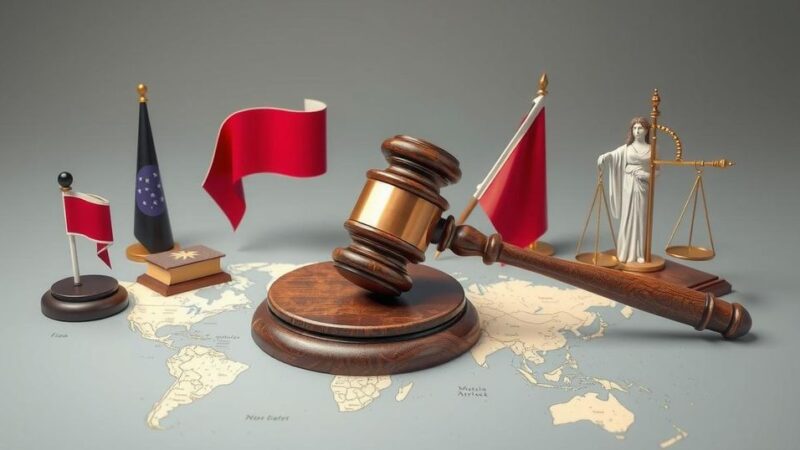Brazil has traditionally supported Venezuela’s leftist governments, but recent electoral controversies surrounding Nicolás Maduro have prompted a shift in policy from President Lula da Silva’s administration. By refraining from recognizing Maduro’s government and acknowledging the intense protests against it, Lula is recalibrating Brazil’s regional approach in response to domestic and international pressures. This move reflects a broader acknowledgment of the need for democratic change in Venezuela, despite the challenges in translating this stance into concrete actions.
Brazil is experiencing a significant shift in its foreign policy regarding Venezuela, which traditionally has relied on support from left-wing governments. Historically, under Luiz Inácio Lula da Silva and Dilma Rousseff, Brazil endorsed Venezuelan leaders like Hugo Chávez and Nicolás Maduro, viewing them as allies against U.S. intervention. However, following the recent contentious electoral claims by Maduro, Lula has hesitated to recognize his administration as legitimate, referring to it as a “very unpleasant regime” characterized by authoritarian tendencies. This change signals a broader recalibration of Brazil’s international strategy fueled by increased anti-Maduro protests and a shift in public perception, which has turned against the Venezuelan government. Lula’s government is influenced by the significant Venezuelan diaspora in Brazil, dissatisfaction within leftist circles, and growing international condemnation of Maduro’s regime. The ongoing economic crisis in Venezuela further complicates Brazil’s interests, leading to the view that supporting democratic change could offer better long-term benefits than maintaining ties with a failing government. Despite this shift in rhetoric, actionable steps remain limited, raising questions about Brazil’s position in future negotiations regarding Venezuela.
The evolving relationship between Brazil and Venezuela has historical roots dating back to the early 2000s when Brazil consistently backed various leftist governments in Latin America. This support was particularly evident during the presidencies of Lula and Rousseff, where Brazil positioned itself as a champion of Bolivarian socialism against perceived U.S. aggression. However, the deterioration of Venezuela’s political and economic landscape has prompted a reassessment of this alliance, forcing Brazil to consider the implications of its support amidst growing domestic and international pressures.
Brazil’s evolving stance toward Venezuela is indicative of a strategic reorientation influenced by various domestic and international factors. Lula’s reluctance to support Maduro’s government highlights changing public sentiments and the potential for a more democratic approach in Brazilian foreign policy. As Brazil navigates this new terrain, its ability to engage effectively with both the Maduro government and Venezuela’s opposition will be paramount in determining its regional influence and commitment to promoting democracy in Latin America.
Original Source: foreignpolicy.com







